By La June Montgomery Tabron
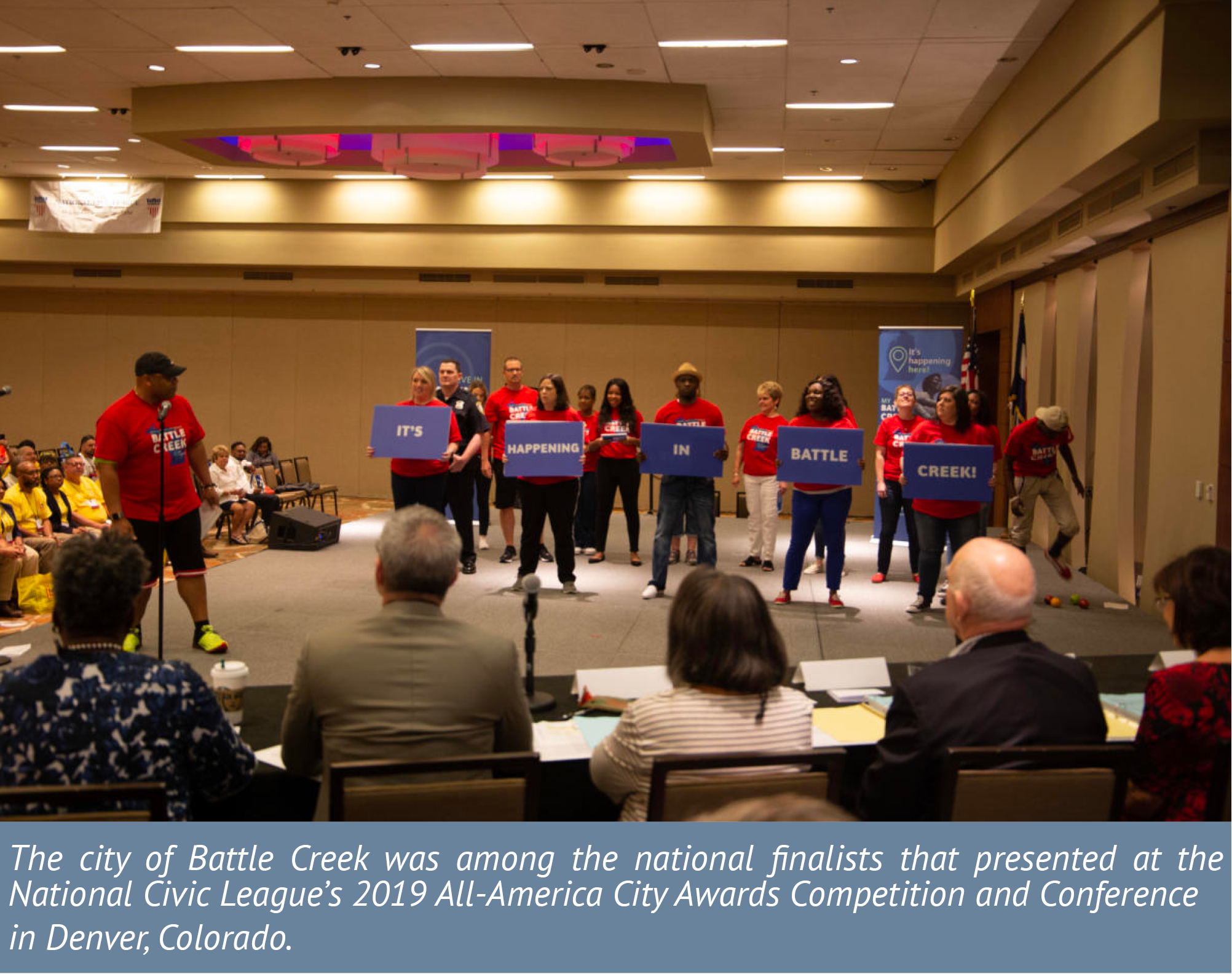 As I watched the 2019 All-America City Award finalists present in June, I could hear the heart of each community and was filled with admiration and with hope.
As I watched the 2019 All-America City Award finalists present in June, I could hear the heart of each community and was filled with admiration and with hope.
National discourse, startling news headlines and the urgency of now can make us feel like we are engulfed by challenges too great to bear. In those moments, my thoughts go to our children and their futures.
Nelson Mandela once said, “There can be no keener revelation of a society’s soul than the way in which it treats its children.” As a mother, sister, friend and the leader of a foundation dedicated to children, I often wonder if there’s enough momentum to create the transformational change our children need. Watching the All-America City Award candidates was like a burst of light and energy — the spark our children need.
Each community showcased how students, teachers, police officers, health care workers and others are collaborating to create positive changes. At the W.K. Kellogg Foundation (WKKF), we call this authentic community engagement – efforts by a whole community to realize their full potential and build vibrant places where people can thrive.
Will Keith Kellogg’s Legacy is in Our DNA
In almost 90 years of operations, the Kellogg Foundation has consistently pursued “the health, happiness and well-being of children,” as our founder directed.
Children are at the heart of everything we do at WKKF. Our goal is lasting, transformational change for children. Yet we know that children live in families and families live in communities. So, if we want children to thrive, their families need to be able to support them and their communities need to be equitable places of opportunity.
Mr. Kellogg offered a three-step approach for accomplishing what the All-America City communities are doing. He called it Cooperative Planning, Intelligent Study and Group Action. That involved bringing together cross-sector experts – community people, business owners, health care providers, nonprofit and government leaders – and having them all consider a challenge, learn about it as a group and determine actions to address it together.
Over the years, communities have affirmed that it takes time and care to build trust, listen and act together. Those experiences have shaped our ideas about how to seed transformational change for children. Today we understand that lasting change requires three things — Racial Equity and Racial Healing, Leadership, and Community Engagement. We call these our DNA and each strand is embedded in everything we do.
Communities need racial equity and racial healing. We say that racial equity is an aspirational pursuit insisting that all people, regardless of their racial/ethnic group identification, skin color or physical traits will have equal opportunity to experience well-being in a just society. Achieving racial equity means that an individual’s identity would not be predictive of their day-to-day experiences or life outcomes.
Racial equity is a two-strand approach that focuses on systems transformation and racial healing. To move forward together, we must tackle the hurdles created by systemic racism and facilitate deep relationship building that can renew people’s hearts and minds toward wholeness.
Communities need dynamic leadership. To advance racial equity, we know that leadership driven by those directly impacted by systemic racism and oppression will lead to meaningful and enduring change. Leaders emerging from communities have unparalleled expertise and experience to identify and address needs and gaps in how their children are educated; public and private resources and opportunities are distributed; their families and communities are made healthy, whole and safe; and how success is defined and measured.
And they need authentic community engagement. Community members have first-hand knowledge, wisdom, experience and passion to create sustainable solutions for their children and families to thrive. Too often institutions have wielded their power in ineffective and non-inclusive ways. We believe that working with and for community members is the approach that fosters true partnership and the potential for transformational change.
“Authentic community engagement requires our willingness to be taught and the courage to respond to what we learn. Together we commit to asking questions, sharing knowledge, searching out new information, exploring resources – the in-depth, intelligent study that leads to solutions.”
Our Community Engagement Approach
Like our founder, we believe that all people have the inherent capacity to make change. By our definition, community engagement is the process of working collaboratively with communities to address issues they identify as priorities. Our approach to community engagement is a continuous cycle of Cooperative Planning, Intelligent Study and Group Action. When communities drive how problems are defined, how decisions are made and how solutions are created, meaningful and enduring change is possible.
Meaningfully engaging communities starts with building trust. There’s a natural skepticism that many communities – especially communities impacted by systemic racism – hold when interacting with institutions like philanthropy. We’ve inherited a history that is riddled with the impacts of racism and social injustice, often perpetuated in the name of social good. We must be bold enough to undo the harm that was done, one step and one relationship at a time.
At WKKF, we recognize the value of using an adaptive community engagement approach that is both culturally and geographically appropriate (rural, urban, suburban) and responsive to the community context. Such an approach respects the sovereignty of tribal nations; dismantles historic and contemporary racial inequities; and forges new relationships for collaboration within and across cultural communities and institutions.
This intentional approach catalyzes action that builds into systems change. We invest in organizational capacity building so that local organizations can best serve and partner with communities. When this lens is embedded into the fabric of an organization, community members can effectively navigate, engage and collaborate as trusted partners.
Authentic community engagement requires our willingness to be taught and the courage to respond to what we learn. Together we commit to asking questions, sharing knowledge, searching out new information, exploring resources – the in-depth, intelligent study that leads to solutions.
Lasting Change for Children
Just as the All-America City Award winners inspired me, here are a few stories from our work to inspire you:
In our hometown of Battle Creek, Michigan, a community-driven movement has laid the groundwork for creating an equitable community where all residents can thrive. Launched in 2015, BCVision is a long-term community economic development initiative to address the most critical challenges impacting Battle Creek’s future: jobs, talent development and creating a culture of vitality. 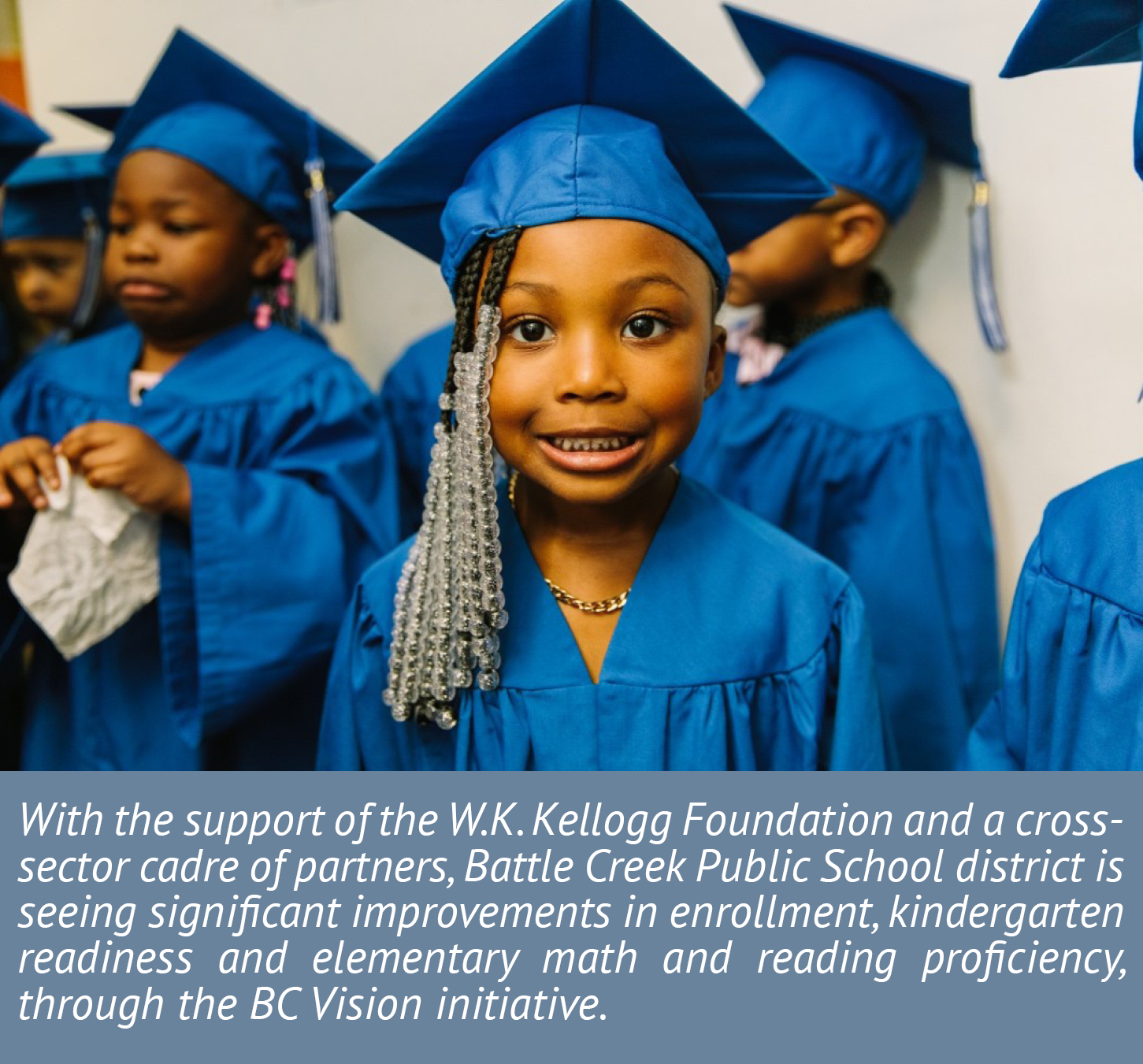 These were the most pressing issues identified by thousands of community members that provided input and quickly became the over-arching goals guiding BCVision’s work. Today, we’ve seen cross-sector partnerships accelerate economic development to transform our city – $1.5 million in small business loans have been deployed, more than 200 jobs created, city organizers are coordinating vibrant events and student outcomes are improving in early grades. The impact of this extraordinary community engagement process is evident by Battle Creek’s distinction as a winner of the National Civic League’s 2019 All-America City Award!
These were the most pressing issues identified by thousands of community members that provided input and quickly became the over-arching goals guiding BCVision’s work. Today, we’ve seen cross-sector partnerships accelerate economic development to transform our city – $1.5 million in small business loans have been deployed, more than 200 jobs created, city organizers are coordinating vibrant events and student outcomes are improving in early grades. The impact of this extraordinary community engagement process is evident by Battle Creek’s distinction as a winner of the National Civic League’s 2019 All-America City Award!
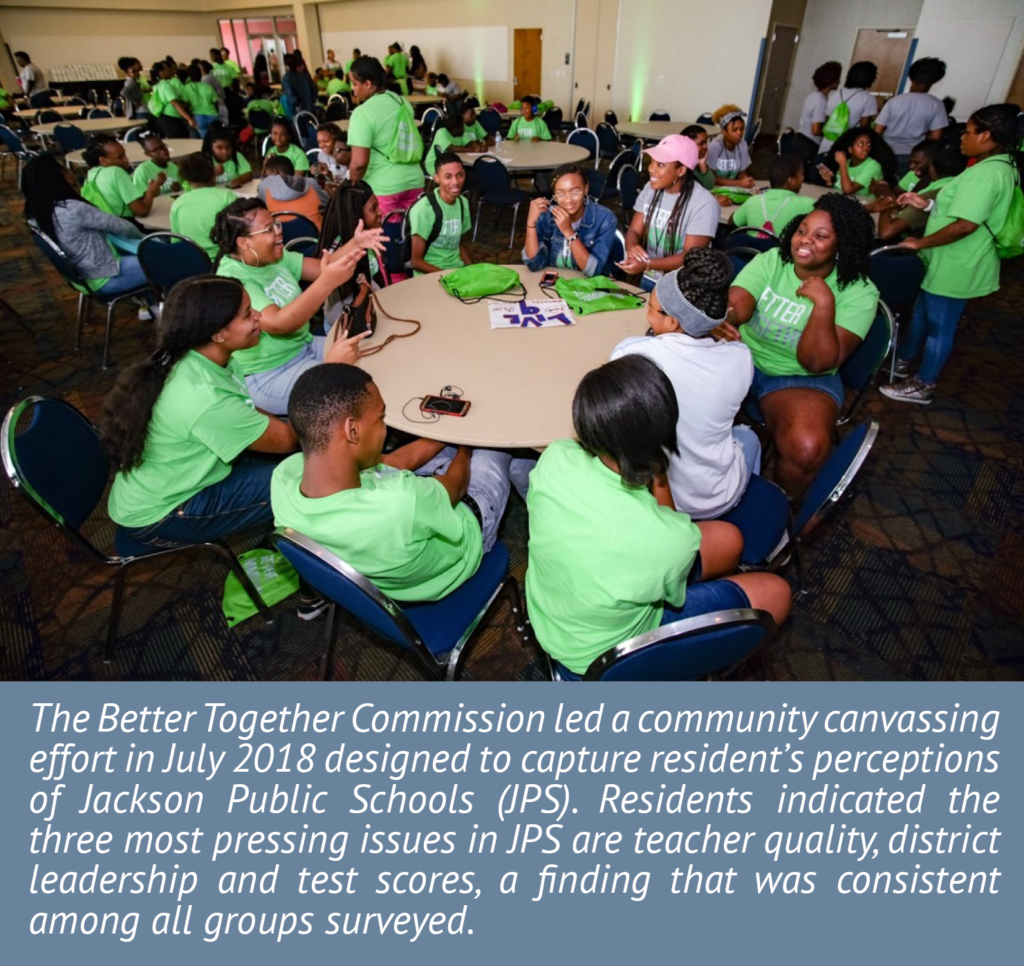 In Jackson, Mississippi, families and the community are helping to transform Jackson Public Schools (JPS). In 2018, the district was on the verge of a state takeover when Mississippi Governor Phil Bryant, Jackson Mayor Chokwe Lumumba, JPS and WKKF came together to form the Better Together Commission. The commission was tasked with shepherding a process that would help transform JPS and ensure a quality education for all students. Over 18 months, the commission led a comprehensive study of Jackson’s educational system, while also leveraging the expertise of local, state and national resources. Additionally, thousands of Jackson residents’ voices contributed to a listening tour, a poll and door-to-door canvassing. The learnings informed the district’s five-year strategic plan, unveiled in July 2019, to deliver quality education to all 25,000 students.
In Jackson, Mississippi, families and the community are helping to transform Jackson Public Schools (JPS). In 2018, the district was on the verge of a state takeover when Mississippi Governor Phil Bryant, Jackson Mayor Chokwe Lumumba, JPS and WKKF came together to form the Better Together Commission. The commission was tasked with shepherding a process that would help transform JPS and ensure a quality education for all students. Over 18 months, the commission led a comprehensive study of Jackson’s educational system, while also leveraging the expertise of local, state and national resources. Additionally, thousands of Jackson residents’ voices contributed to a listening tour, a poll and door-to-door canvassing. The learnings informed the district’s five-year strategic plan, unveiled in July 2019, to deliver quality education to all 25,000 students.
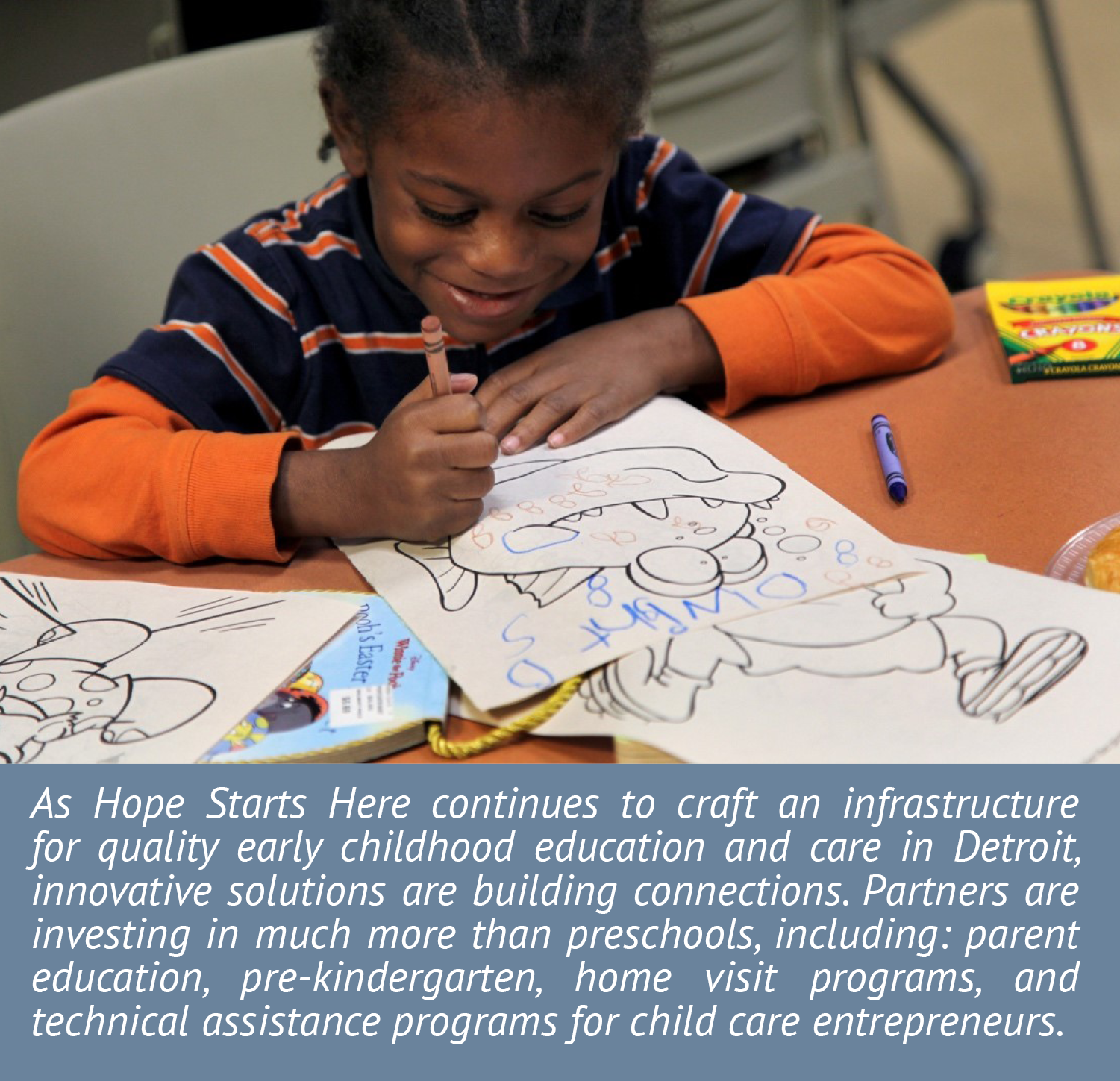 In Detroit, Hope Starts Here – Detroit’s Early Childhood Partnership – has engaged families, businesses, child education and health experts, and the larger community in creating a vision to ensure that children are born healthy, prepared for kindergarten, and on track for success by third grade and beyond. In fall 2016, The WKKF partnered with the Kresge Foundation to launch the community-led partnership. More than 18,000 Detroit residents, parents and caregivers contributed to the grassroots process. In late 2017, the Hope Starts Here strategy teams finalized and released a 10-year framework to build an early childhood education and care infrastructure that will ensure that all Detroit’s children can thrive.
In Detroit, Hope Starts Here – Detroit’s Early Childhood Partnership – has engaged families, businesses, child education and health experts, and the larger community in creating a vision to ensure that children are born healthy, prepared for kindergarten, and on track for success by third grade and beyond. In fall 2016, The WKKF partnered with the Kresge Foundation to launch the community-led partnership. More than 18,000 Detroit residents, parents and caregivers contributed to the grassroots process. In late 2017, the Hope Starts Here strategy teams finalized and released a 10-year framework to build an early childhood education and care infrastructure that will ensure that all Detroit’s children can thrive.
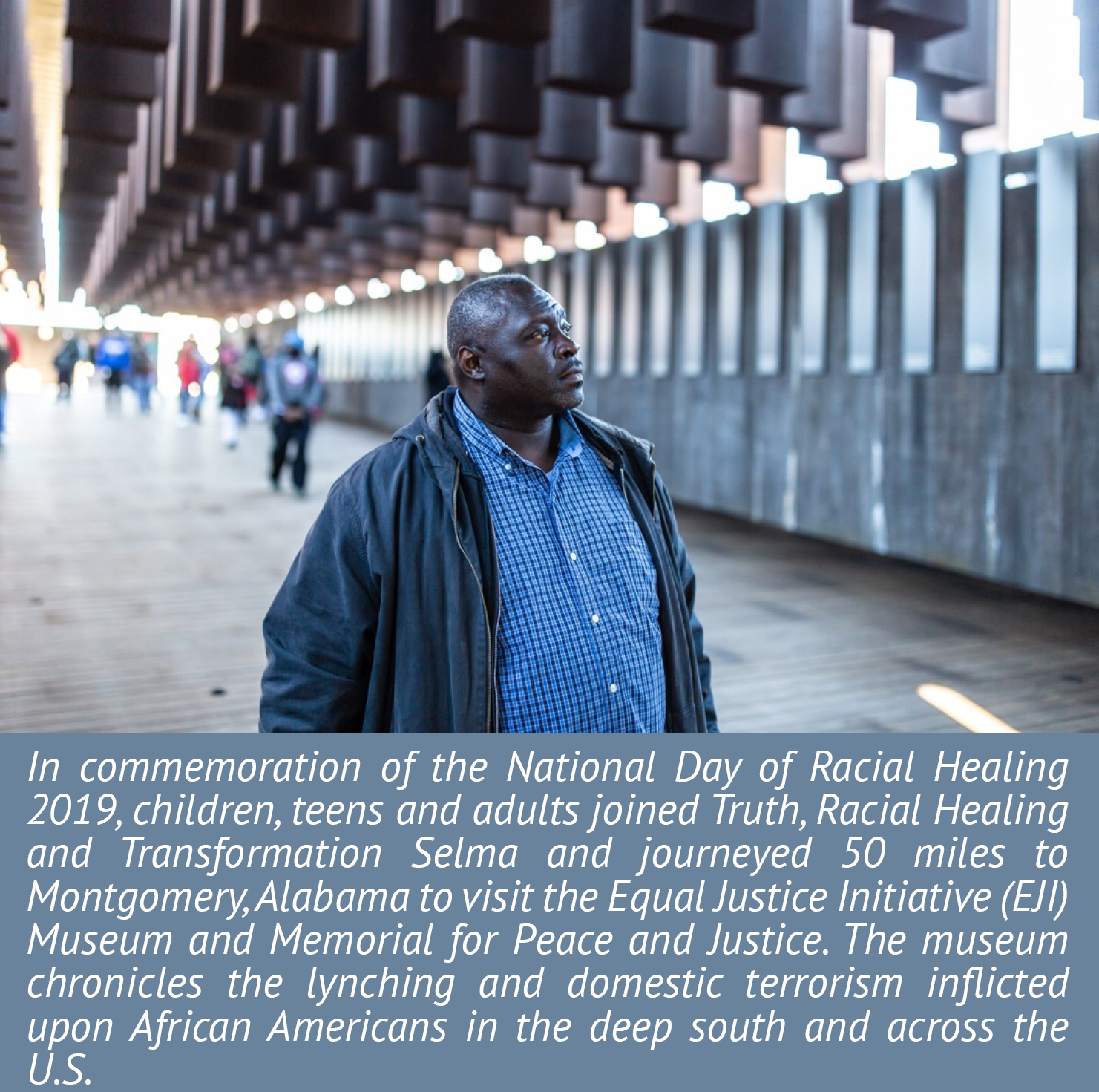 Truth, Racial Healing & Transformation. In 14 places across the U.S., multi-sector community collaborations are working to build a more equitable future for all. WKKF’s Truth, Racial Healing & Transformation (TRHT) effort is a comprehensive, national and community-based process to plan for and bring about transformational change, and to address the historic and contemporary effects of racism. It’s unearthing and jettisoning the deeply held, and often unconscious, beliefs created by racism – the main one being the belief in a hierarchy of human value. Now in their third year, these collaborations are at the forefront of trying new approaches to build relationships, change narratives and advance racial equity in the systems and structures that impact children and families.
Truth, Racial Healing & Transformation. In 14 places across the U.S., multi-sector community collaborations are working to build a more equitable future for all. WKKF’s Truth, Racial Healing & Transformation (TRHT) effort is a comprehensive, national and community-based process to plan for and bring about transformational change, and to address the historic and contemporary effects of racism. It’s unearthing and jettisoning the deeply held, and often unconscious, beliefs created by racism – the main one being the belief in a hierarchy of human value. Now in their third year, these collaborations are at the forefront of trying new approaches to build relationships, change narratives and advance racial equity in the systems and structures that impact children and families.
As a TRHT national partner, the National Civic League also joined this effort to share TRHT with its network. You are invited to join us in celebrating the fourth annual National Day of Racial Healing on January 21, 2020.
Communities Know Best
Just as the All-America City Award winners demonstrated, when we authentically engage the whole community, we can thrive together.
Authentic community engagement emboldens us to envision and create new models, cross-sector partnerships, broad networks and game-changing resources – the tools that society needs to remove hurdles for children.
This year’s award winners — and the determination, creativity and perseverance of every year’s honorees — are an inspiration to all of us. It is why we work alongside communities on behalf of children, for we know the community knows best.
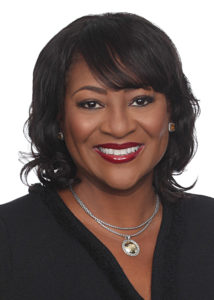
La June Montgomery Tabron is president and CEO of the W.K. Kellogg Foundation and Co-Chair of the National Civic League’s 125th Celebration Committee.



